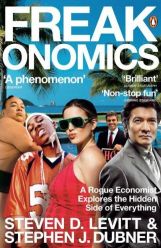Obama inauguration photos
27 January 2009
I was working from the Boston (US) office on the day of Obama's inauguration this week and we watched it streamed over the web. From his opening line ("My fellow citizens" - reaching out to everyone living in America, not just the born or naturalised Americans), it was clear that this was the start of an era of change. There was a great spirit of optimism in everyone I met. At a concert in a local bar on Friday, the biggest applause was not for the band, nor the singer, but for Obama namechecked at the end.
When I returned home, the Amnesty International magazine in my post tray was calling on Obama to close down Guantanamo. He'd already started. It remains to be seen how much he can achieve how quickly, but he promises a return to values-led politics, something which has been lacking in the US (and the UK) for too long.
Obama's face carved in snow on a pillar of the Widdener Library, Harvard University, on the morning of the inauguration.
Obama merchandise in Borders includes a jigsaw puzzle of the Boston Globe front page on the day he won the election, t-shirts, and numerous books, including two written by Obama himself. Whether you want to read Obama's own take on politics, or just wear the icon on your chest, Obama is there for you.
This deli and grocery store was decorated for the occasion. A small crowd was gathered around this shop window watching the news again as I walked home in the evening. The inauguration took place the day after Martin Luther King Day and the shop's other window had a picture of Martin Luther King alongside a picture of Obama.
Labels: photography, politics
New York City photographs
06 January 2009
Happy new year everyone.
In December I visited New York City, and I've just uploaded my gallery of New York City Photographs. It was a great time to be there - the city was decorated for Christmas, including giant baubles and giant Christmas tree lights. There was also a great vibe around Obama's recent election - some people had their Obama campaign stickers left on their jackets with pride, and he was on the cover of nearly every magazine, and on t-shirts on many a street corner.
Here's one photo that didn't make it into the main gallery:

Labels: photography, politics, travel
Brown's constitutional reforms
04 July 2007
Gordon Brown claims he will introduce reforms to ensure that MPs will in future decide whether the UK goes to war. Will it make any difference? No, because it won't be a free vote and MPs will still be whipped to toe the party line. If he really wanted to ensure that power was shared and MPs were able to do the job they are supposed to, Brown would make votes on war a matter of conscience and declare them constitutionally out of bounds to party whips. Jack Straw is in charge of pushing through legislation, which doesn't inspire confidence. He was foreign secretary at the time of Bliar's invasion of Iraq.
Brown has also confirmed he will perpetuate the anomaly that means Scottish MPs can vote on matters that only affect England, but English MPs cannot vote on matters that only affect Scotland.
It looks like Brown's trying to attract LibDem voters by creating the impression he's transforming the country's political system without actually doing very much at all. Offering Paddy Ashdown a job was a smart way to attract LibDem voters as well. Brown must have known that Ashdown would turn it down, given the detail Ashdown goes into in his published diaries about negotiations with Bliar. But it doesn't matter: it sends a signal that Brown wants LibDems on his team and welcomes LibDem ticks against Labour names in ballot boxes.
Labels: politics
Green marketing: a mainstream demographic?
03 May 2007
'People worried about climate change' has become a market segment. Yesterday's Independent carried two full-page adverts for organisations who want to reach that customer.
The first was from Together.com, and lists how eight UK companies can help us to cut our carbon emissions. M&S, which I do believe is taking carbon reduction seriously, says that it is encouraging customers to wash their clothes at 30°C when possible. British Gas claims to offer free home energy audits and O2 will give you £100 credit for keeping your old phone when you renew your contract. Sky is apparently introducing a sleep mode for its cable boxes.
Some of the other companies taking part didn't have much more than a sales pitch. Royal & Sun Alliance is offering a new eco-insurance product (whatever that might mean). B&Q is selling cheaper insulation and Tesco says it has halved the price of energy efficient light bulbs.
I was ready to have a go at Tesco, in particular, for a lack of imagination. As one of the UK's most influential businesses, you would think that they could come up with other ways to save the planet. I'm pleased to say (after a little digging) that they have also committed to halving emissions by 2020 and using energy efficient bulbs. There just wasn't room for that in the advert, I guess.
Barclays says it will donate half its profits from a new credit card to carbon reduction programmes. The cynical part of me wonders whether this means their own carbon reduction programmes, which they should be doing anyway. But they're also asking people to buy foreign currency from them and pay to offset the carbon of their flight at the same time. That's a clever way to make it easy for guilty greenies to settle their debt to the planet and bring in a bit of extra business.
Ten or twenty years ago affinity marketing became a big thing - basically aligning products with causes and charities. That's where Comic Relief gets a few pence from the sale of a box of soap powder, and the manufacturer gets to splash all over the place about how great it is because it does a lot of great work for charidee, and does like to talk about it. The charity makes more money than it otherwise would, the manufacturer sells more products, the customer gets a rosy glow from choosing the cuddly company to buy from. Everyone's a winner.
Climate change is a bit different. If people take it seriously, it could be a direct threat to the growth of many businesses. If people start buying from local suppliers, Tescos is screwed. If people start taking the waste problem seriously, they'll stop buying M&S's highly packaged lunches. Bully for Sky making its units go into standby mode, but aren't we supposed to be switching off properly? Can we not haul ourselves off the sofa that far to help save all life as we know it? In fact, we can probably do without telly altogether if it's going to be that much hassle. Why are we marketing carbon offset programmes? Is it because we've already accepted that we're not willing to cut our flights, and we think we can endlessly buy our way out of the problem?
While I'm sure many in these businesses are sincere about wanting to save the planet, the economic model we use won't let them do what they really should: Take out a full page advert that says 'STOP BUYING SO MUCH OF OUR STUFF!'

A tiny reminder of what's at stake.
Image courtesy NASA Johnson Space Center. Used by permission.
The other advert in the Independent was for Spurt Airlines:
We hear a lot of guff about flying and global warming. The media mob say aviation is the fastest rising source of greenhouse emissions. 'Save Africa' whingers claim that 160,000 people a year are already dying from climate change. And 99% of climate science cronies babble on that emissions from aviation growth will scupper all other greenhouse gas reductions the UK might make. So what? Global warming isn't a good enough reason to miss out on some ridiculously cheap flights.
The advert goes on in a similar sarcastic vein about how everyone should vote Labour because that's a vote for the aviation industry. 'Why go green when you can have Brown?' it says.
It doesn't say who's placed the ad, and the spoof company's website is no more open. The press release mentions Enoughsenough, Planestupid and Greenpeace and this campaign reminds me of Greenpeace's previous anti-Apple website. But there's no clear claim for authorship.
The campaign is interesting because it's encouraging tactical voting against Labour purely on the grounds of aviation growth. That suggests that someone with money believes the environment is, or could be, a key voting issue. And it implies that Labour is much worse than the other two parties on aviation support. I'm not sure the Conservatives or LibDems would have been much different in their handling of aviation over the last ten years if they had been in power. At first I wondered whether the ad had been placed by the Conservatives, since they seem to be targeting green voters and they'll be the next government if they unseat enough Labour MPs (even if many go LibDem).
I'm not surprised to see both these ads in the Independent, which has positioned itself lately as a liberal and green paper.
We should expect to see a lot more of this kind of activity. We're a market segment now. Be prepared to be bombarded.
Related link: Climate change: An inconvenient truth.
Labels: business, environment, politics
Climate change: An Inconvenient Truth
24 October 2006
I urge you to see Al Gore's documentary 'An Inconvenient Truth'. It's both the scariest film you're likely to see and an inspiring call to action.
According to the film, Gore has been trying to get people to act on climate change for decades. As well as releasing this film - based around a lecture tour he's been giving for years - Gore is training up 1000 people to deliver the presentation themselves all over the world. He's taking this seriously, and so should we.
He's up against some stiff competition. According to his research, about half the reports in the media question the reality of climate change. He contrasts that with hundreds of papers in peer-reviewed scientific journals, not one of which questions the catastrophic environmental changes we're putting the planet through.
The film's greatest success is communicating the urgency of this problem. It shows how major cities and countries (including the Netherlands, and the site of the World Trade Centre) will be flooded if Greenland melts, something which the film paints as likely within the foreseeable future if things don't change. He compares photos of receding glaciers from today and thirty years ago. There's also desperate footage of a polar bear looking for ice solid enough to rest on. For the first time, bears are drowning.
The film also sounds a note of hope: we have the technology and tools to make a difference. And each one of us can make tiny changes that amount to a massive saving in greenhouse gasses.
The film is out now in cinemas, coming soon to buy on DVD and to rent from your favourite video club. Watch it. Be inspired. Save the planet.
Labels: environment, film, politics
Book review: 'Freakonomics' by Steven Levitt & Stephen Dubner
11 October 2006
 There are two themes running through 'Freakonomics'. The first is what a great bloke the co-author Steven Levitt is. Authors are expected to big themselves up on their book covers ('If Indiana Jones were an economist, he'd be Steven Levitt'), but it doesn't stop there. Words used to describe Levitt inside the book include 'the most brilliant young economist in America', someone who is 'so talented that [his work] doesn't need a unifying theme', 'a demigod, one of the most creative people in economics and maybe in all social science', 'a noetic butterfly no one has managed to pin down', and 'a master of the simple, clever solution'. This last one comes after six pages of introduction and two proper chapters, by which time it's too late to be pitching: we're either convinced he's worth reading because of his ideas, or we're not.
There are two themes running through 'Freakonomics'. The first is what a great bloke the co-author Steven Levitt is. Authors are expected to big themselves up on their book covers ('If Indiana Jones were an economist, he'd be Steven Levitt'), but it doesn't stop there. Words used to describe Levitt inside the book include 'the most brilliant young economist in America', someone who is 'so talented that [his work] doesn't need a unifying theme', 'a demigod, one of the most creative people in economics and maybe in all social science', 'a noetic butterfly no one has managed to pin down', and 'a master of the simple, clever solution'. This last one comes after six pages of introduction and two proper chapters, by which time it's too late to be pitching: we're either convinced he's worth reading because of his ideas, or we're not.And mostly, to be fair, we are. The second theme of the book is how the tools of economics and data processing can be used to test assumptions and explode myths about what motivates people. Along the way, Levitt answers questions such as why do so many drug dealers live with their mothers if dealing crack is supposed to be so lucrative? And do estate agents work in your best interests? He uses data to find teachers faking student exam marks and sumo wrestlers throwing a fight.
There are some surprising conclusions (although not about estate agents, needless to say). Prostitutes typically earn more than architects, he concludes, which is in part a reflection of the demand for their services: "Let's just say an architect is more likely to hire a prostitute than vice versa". Levitt demonstrates that US crime fell in the nineties mainly because of a pro-abortion law passed decades earlier, and that swimming pools pose a bigger threat to children than guns do.
Such ideas are fun to play with, but the book loses its way as it progresses. The concluding chapters are about what makes a perfect parent and what impact a baby's name might have on its life. Both get too bogged down in data to argue a convincing case.
Freakonomics has a lot of fascinating material and is recommended for anyone who enjoys a bit of a brain workout. Don't sweat the last two chapters, though. And don't write Levitt fan mail. It might go to his head.
Labels: book review, politics
Book review: 'As Used on the Famous Nelson Mandela' by Mark Thomas
09 October 2006
 What better way to expose the laxity of UK arms controls than for a bunch of schoolchildren to set themselves up as arms dealers? Without breaking the law, Mark Thomas and his team of students were able to trade weapons and torture instruments internationally. His book 'As used on the famous Nelson Mandela' is a damning expose of an industry worth about $1,900 million in exports to the UK - an industry that thrives on death and misery and is often subsidised by the tax payer. The villain in this story is British Aerospace, which Thomas concludes has exerted inappropriate influence on UK foreign policy.
What better way to expose the laxity of UK arms controls than for a bunch of schoolchildren to set themselves up as arms dealers? Without breaking the law, Mark Thomas and his team of students were able to trade weapons and torture instruments internationally. His book 'As used on the famous Nelson Mandela' is a damning expose of an industry worth about $1,900 million in exports to the UK - an industry that thrives on death and misery and is often subsidised by the tax payer. The villain in this story is British Aerospace, which Thomas concludes has exerted inappropriate influence on UK foreign policy. The tone of the book is well-measured: Thomas is able to hint at the dark side of the arms trade without setting up any voyeuristic sideshows. His approach is inherently comic, involving at times ridiculous stunts, but his talent for the one-liner (honed through years on the stand-up circuit) makes the heavy stuff engaging too. There's proper research behind this book and Thomas is both informed and well connected as an activist.
This book is an entertaining and thought-provoking read. If you've enjoyed Mark Thomas's live shows you'll hear his voice clearly as you turn the pages. If you're not familiar with his live work, start with his double CD recorded 'The night [Blair's Iraq] war broke out'. It's a perfect example of how to take a subject seriously while being imaginative and humourous in its presentation - a rare talent.
Labels: book review, comedy, politics
Tony Blair's legacy
01 October 2006
When Blair is finally dragged out of Downing Street and his fingers are unprised from the door jamb, the media will be awash with reports of Blair's legacy. Many of these will be rose-tinted (remember when Thatcher left?). It's true that he made the Labour Party electable for the first time in years, but he did that by turning it into the Conservative Party. It's true also that he transformed the art of politics, but he did that by turning it into a battle of spin doctors. With traditional Labour principles scrapped and no replacement ideology, there is no political debate left. Just a squabble over whose turn it is next to run the country. Blair turned politics into the art of projecting personality.
Here's what I think of as Blair's legacy. I wanted to write this when he left, but frankly I can't wait that long.
Blair's legacy (in no particular order):
- Policy without any guiding ideology that results in muddled thinking: such as extending pub licensing hours while banning smoking in public.
- Introduction of on-the-spot fines issued by police (see Spot fines for anti-social behaviour, BBC News). This erodes the concept of separation of powers, by effectively making police judge and jury on selected crimes.
- Banning the right to protest near parliament without permission. (see Parliament protester to fight ban, BBC News). This is a significant infringement of freedom of speech and a direct indication of Blair's contempt for the electorate.
- Introduction of Antisocial behaviour orders (ASBOs). This is a back door for creating imprisonable offences that only apply to specific individuals. The BBC lists examples of ASBOs, and Redpepper has a good analysis. ASBOs can be created against individuals without needing evidence 'beyond reasonable doubt'. Breaching the ASBO can be an imprisonable offence, even if the behaviour that the ASBO seeks to restrict is not.
- The Regulation of Investigatory Powers Act (RIP), giving government agencies the right to monitor anybody's communications data without a search warrant (see The RIP Act, The Guardian). This law reverses the age-old maxim of 'innocent until proven guilty'. A computer user could be be imprisoned for up to two years for failing to provide decryption keys.
- ID Cards. These are on the back-burner for now, but threaten to be a massive state invasion of citizen privacy, massively expensive, and with no benefit to the tax payer. It's been suggested that ID Cards will somehow stop terrorists. No credible examples of how have been provided in support of this claim.
- Introduction of student top-up fees, breaching a Labour Party manifesto promise that Labour 'will not introduce top-up fees and has legislated against them' (see Timeline: tuition fees, The Guardian and the Liberal Democrats' Scrap Tuition Fees Campaign).
- Sleaze. After Blair promised on his election that his government would be 'whiter than white', there has been widespread accusation that the Labour Party had been accepting loans it never intended to repay to avoid having to declare them as donations, and rewarding donors with honours (see Cash for honours inquiry stepped up, the Guardian). Oh, and all the Blunkett and Mandelson reincarnations were pretty sleazy too. Saying (in 2001) that the government wouldn't raise income tax and then putting a penny on NI instead was pretty underhand as well. This bullet could be an article in itself...
- Launching air strikes against Afghanistan (see Timeline: Afghanistan, BBC News) for refusal to hand over one terrorist suspect.
- The Iraq War. An illegal invasion, prosecuted using lies (Iraq could attack us in 45 minutes?) and a dodgy ripped-off report. They didn't even count the civilian casualties. No credible evidence of weapons of mass destruction has been found. Iraq, now on the brink of civil war, is a mess that will long outlive Blair's tenure.
The dismantling of civil liberties is a particular concern because it creates such wide-ranging powers for the state. While the present government might be considered by many to be mostly harmless, Blair has granted all future governments rights that can be easily abused to suppress the population or large sections of it. This is grossly irresponsible.
Nearly ten years on, it's tempting to think back to the 'New Labour, New Danger' campaign that defined the 1997 election.
Get involved. Make a difference.
- If you care about human rights, please join Amnesty International. It saves lives.
- If you're concerned about ID cards, please join No2ID.
- Please sign the petition against student tuition fees.
- If you are a Liberal Democrat voter, please join the party. Your membership fee gives your vote more impact.
- Join the Stop the War Coalition
- If you think this post is of interest to your own blog readers, please link to it.
Phew! And I didn't even call him Bliar once. Oops. There I go...
Labels: politics
Robin Cook's finest moment
07 August 2005
I'm reading Robin Cook's book: The Point Of Departure and was shocked and saddened to hear of his death.
As a tiny tribute to the only member of this government to emerge from the Iraq war with any credibility, a link to his finest moment: Robin Cook's resignation speech. It's eloquent, diplomatic and above all fully supported by the truth - both as it was known then, and as it later turned out to be.
At a time when even the official opposition supported Bliar's greatest folly, Cook gave up his job to oppose Bliar's war-mongering. When you see how upset Robin Cook was at having to resign from the government over Iraq, you realise what a personal sacrifice he made in the name of peace.
Labels: politics
